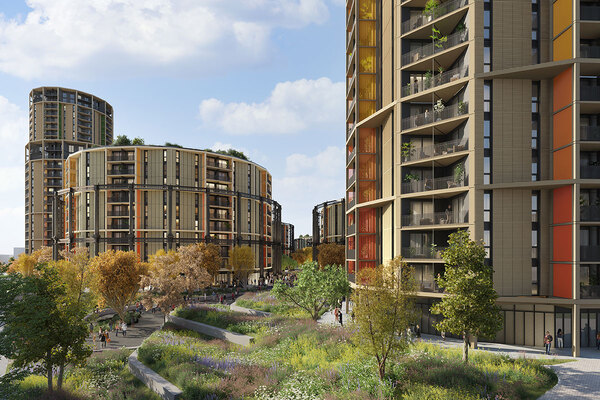Treasury overhauls Green Book rules for funding housing and infrastructure schemes to fit levelling-up agenda
The government has announced an overhaul of the way it assesses large investment programmes in order to align with its “levelling-up” agenda, it announced today.

Published alongside the Spending Review documents today, the government’s review into the Green Book – announced at the March Budget – highlighted several flaws in the method and outlined a suite of proposed changes.
Housing organisations such as Homes for the North have long been calling for changes to be made to the Green Book, arguing that in the past investment allocations have been “overwhelmingly concentrated” in London, the East of England and the South East of England.
The government said a central finding of the review is that the appraisal process often fails to “properly consider how a proposal will deliver the government’s policy ambitions, including levelling-up”.
To address this, the government said it would end the “dominance of benefit-cost ratio” decision-making in the Green Book and ensure it is no longer acceptable for proposals to be “place-blind”.
“These changes will mean that appraisals and advice to ministers should include much better analysis on how options will deliver their policy goals, as well as which parts of the country look to gain most from them, supporting better-informed decisions.”
The government said alongside the overhaul of the Green Book, departments will develop relocation plans over the coming year as part of the government’s commitment to levelling-up. It said it is committed to relocating 22,000 roles out of London and the South East by 2030.
One of the main contentions northern affordable housing providers have with the current Green Book is the use of the 80:20 rule, which means 80% of funding is given to areas with affordability pressures, which are predominantly in the South.
The review document does not specifically mention this rule but it does say that the new green book will place “appropriate emphasis on the analysis of place-based impacts”.










